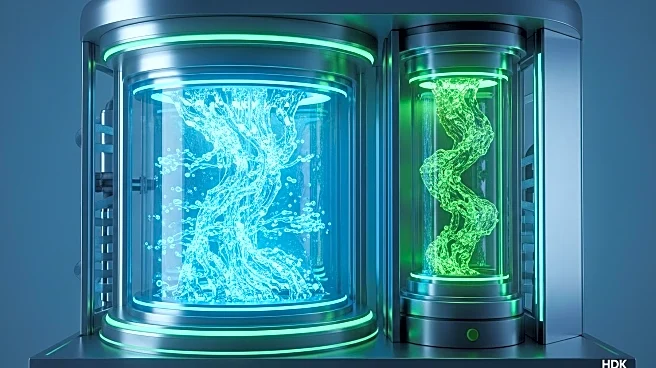What's Happening?
Takara Bio Europe has introduced Cellartis MSC EV Wonder, a defined, xeno-free medium designed to enhance the production of extracellular vesicles (EVs) from human mesenchymal stem cells (MSCs). This new medium aims to address the growing demand for MSC-derived EVs, which are recognized for their regenerative and immunomodulatory benefits. The Cellartis MSC EV Wonder medium promises up to a nine-fold increase in EV production compared to conventional methods, while maintaining essential attributes such as CD marker expression and RNA profile. The medium's formulation is phenol red-free and uses the same basal medium as the Cellartis MSC Xeno-Free Culture System, facilitating a seamless transition from MSC expansion to EV production.
Why It's Important?
The launch of Cellartis MSC EV Wonder is significant as it addresses a critical bottleneck in the field of regenerative medicine—the scalable production of high-quality MSC-derived EVs. These vesicles offer therapeutic benefits without the safety concerns associated with administering intact MSCs. By providing a defined solution that ensures reproducible quality and robust yields, Takara Bio Europe is contributing to the advancement of cell-free therapies, which could lead to more accessible and safer treatment options for various diseases. This development is poised to accelerate the transition from research to clinical applications, potentially benefiting patients and healthcare providers by streamlining workflows and safeguarding quality.
What's Next?
Takara Bio Europe is likely to focus on further optimizing the Cellartis MSC EV Wonder medium for GMP manufacturing, which is crucial for clinical applications. As the demand for MSC-derived EVs grows, the company may explore partnerships with research institutions and healthcare providers to expand the use of this medium in clinical settings. Additionally, ongoing research and development efforts may lead to new applications and improvements in EV production technology, further solidifying Takara Bio Europe's position in the regenerative medicine market.
Beyond the Headlines
The introduction of a xeno-free medium for EV production highlights the ethical considerations in biotechnology, particularly the move away from animal-derived components. This shift not only addresses safety concerns but also aligns with broader industry trends towards more sustainable and ethical research practices. The success of Cellartis MSC EV Wonder could encourage other companies to develop similar solutions, fostering innovation and competition in the field of regenerative medicine.









